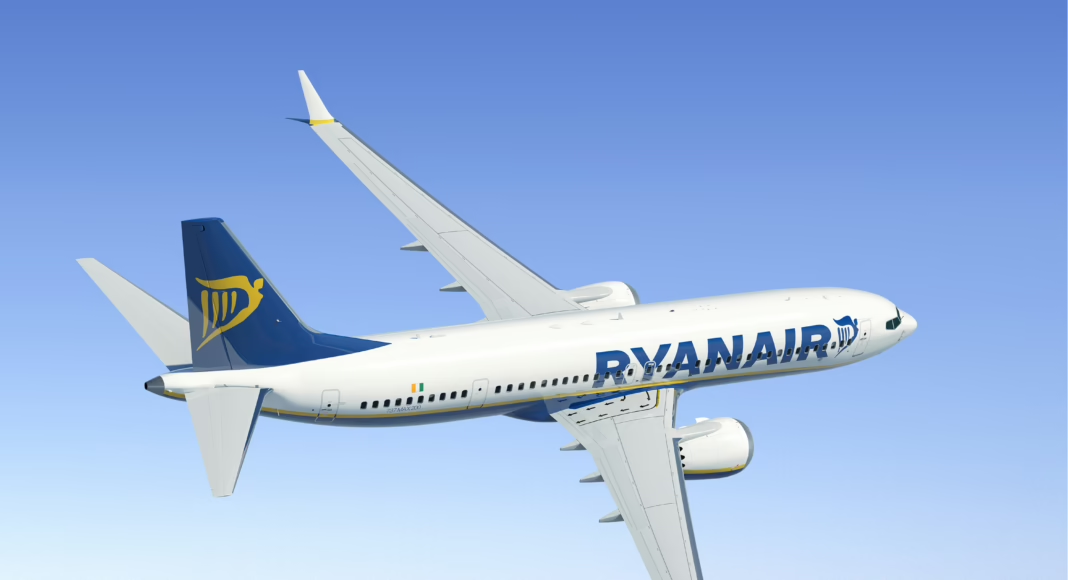Europe’s biggest budget airline pulls planes from Germany, betting traveler outcry over lost routes and higher fares will pressure Berlin to reverse tax increases.
Ryanair will eliminate 800,000 seats and cancel 24 routes across Germany during the winter 2025-2026 season, marking one of the budget carrier’s most significant cutbacks in the country in years as it battles what the airline calls excessive government taxes and airport fees.
The Dublin-based carrier announced the reductions will affect nine German airports, including Berlin-Brandenburg, Hamburg and Memmingen. The cuts will push Ryanair’s German capacity below winter 2024 levels, a sharp reversal for Europe’s largest low-cost airline in one of the continent’s biggest aviation markets.
The airline attributed the decision entirely to high access costs rather than weak demand or financial losses on German routes. Ryanair has repeatedly criticized Germany’s airport charges and aviation tax policies, warning they discourage airline expansion and reduce passenger traffic.
Airports Face Service Reductions
The cutbacks will hit six airports with reduced capacity and three with complete service elimination. Baden-Württemberg, Berlin-Brandenburg, Cologne, Frankfurt-Hahn, Hamburg and Memmingen will see scaled-back operations. Dortmund, Dresden and Leipzig will lose all Ryanair service.
The airline is redirecting aircraft to countries with lower operating costs and more favorable government policies, including Italy, Spain and Poland. Ryanair has used similar capacity shifts in past seasons to pressure governments on aviation policy.
Regional connectivity within Europe faces potential disruption from the cuts. Ryanair’s network has driven low-fare travel from secondary German cities, and the reductions could lead to higher fares and fewer options for passengers in affected areas.
Political Pressure Campaign
The announcement represents an unusually direct public challenge to German government policy. While most airlines avoid political confrontations, Ryanair has leveraged its market position and brand recognition to build public pressure on European governments over aviation taxes and fees.
By issuing a detailed public statement criticizing German tax policy, the carrier aims to mobilize passengers and draw attention to recent aviation tax increases. The airline frames the cuts as harmful to travelers while positioning itself as forced out by government actions.
Ryanair indicated it could restore the eliminated capacity if Germany reverses recent aviation tax increases. The airline thrives on low operating costs, and German operations have become increasingly expensive under current policies.
Broader Market Effects
Germany’s aviation market is dominated by Lufthansa Group and Condor, with high operating costs creating barriers for budget carriers. Ryanair’s network has brought significant inbound leisure traffic to smaller German cities, and reduced service could affect local hospitality and tourism sectors.
The airline prioritizes low-cost operations over serving high-demand markets. Ryanair will deploy capacity cut from Germany to smaller markets with cheaper operating costs rather than maintain service in an expensive country with strong demand.
The carrier publicly stated it seeks more favorable policies that would allow it to restore and even expand German capacity beyond previous levels.

Key Takeaways
Ryanair will cut 800,000 seats and cancel 24 routes across nine German airports for winter 2025-2026, reducing capacity below 2024 levels.
The airline attributes the cuts to high German aviation taxes and airport fees rather than weak demand, using service reductions to pressure the government for policy changes.
Six airports face reduced service while Dortmund, Dresden and Leipzig will lose all Ryanair flights.
Aircraft are being redirected to Italy, Spain and Poland, where operating costs and government policies are more favorable.
The cuts could raise fares and reduce travel options in affected German regions, potentially impacting local tourism and hospitality sectors.



